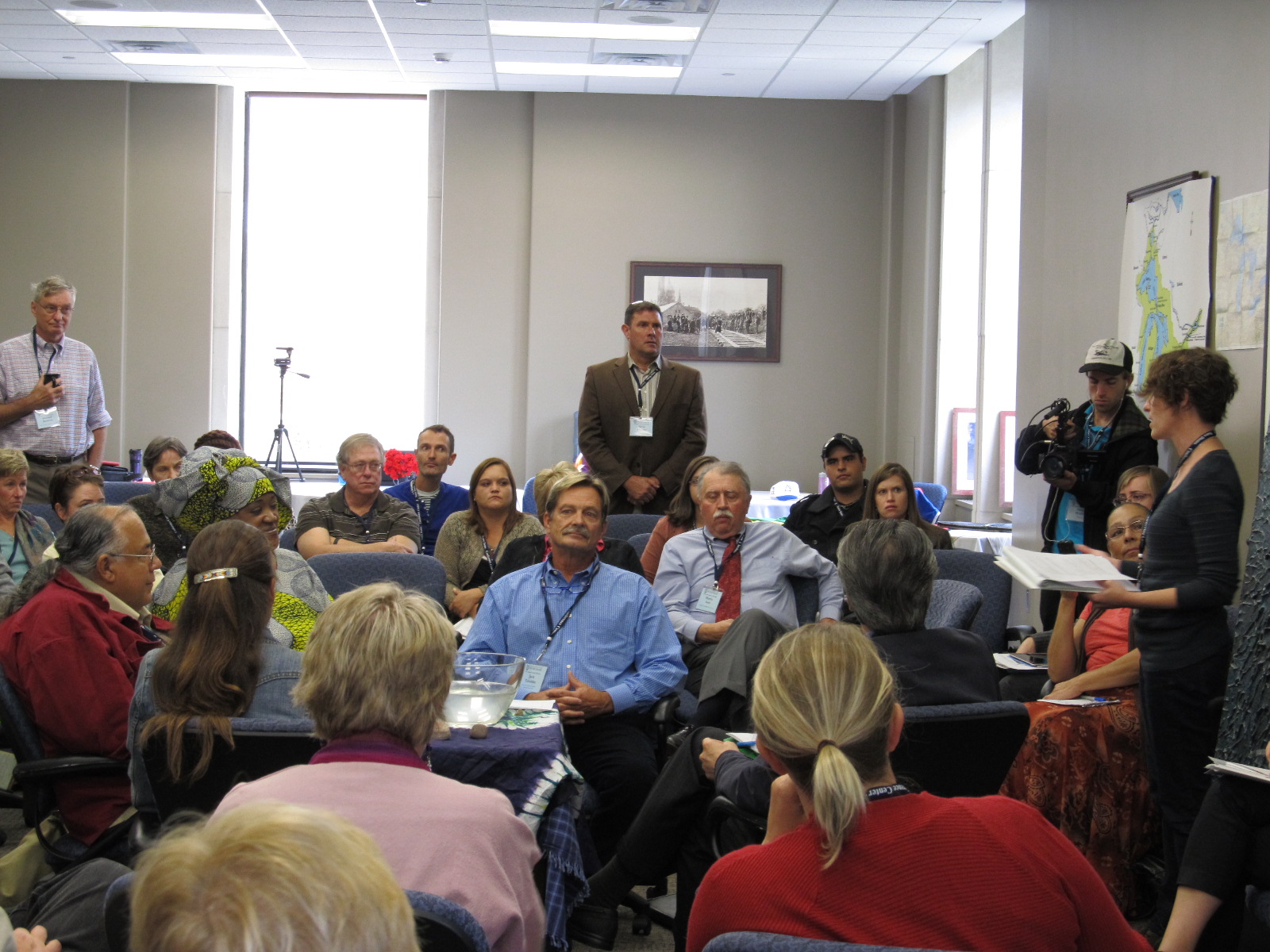I just returned from a Great Lakes Commons gathering at Notre Dame University in Indiana. The gathering brought together nearly 70 Indigenous leaders, youth activists, water activists, artists, academics, engineers and other forward thinking participants. All with a love of the lakes and of water, we set out to build relationships with each other that will be a critical foundation to a bold shared vision on protecting the Great Lakes.
Maude Barlow, National Chairperson for the Council of Canadians, Toronto Chapter activist Michael Brothers and I attended the three-day gathering. The purpose of the gathering was to explore ways forward in creating a different framework for Great Lakes protection based on commons and public trust principles. A ‘commons’ is something that we all share with each other such as natural resources, cultures and sidewalks to which we not only have a collective right but also a responsibility to care for and maintain. The public trust doctrine recognizes that certain ‘commons’ must be protected for community use and therefore governments are required to maintain them for collective use and protect them from abuse and exploitation by private interests.
On Sunday, Grandmother Josephine Mandamin, Doreen Day and Sylvia Plain from the Mother Earth Water Walk opened the gathering with a beautiful water ceremony.
Monday morning’s session was filled with leaders in water issues. Ron Plain, a member of Aamjiwnaang First Nation, gave a hard-hitting introduction on the dire conditions of Aamjiwnaang where 63 petrochemical facilities surround the community within a 25 kilometre radius. The air and water pollution is shocking and would never be allowed to happen in many communities in Canada. Aamjiwnaang has the first documented case of endocrine disruption where twice as many girl babies are born compared to boy babies. Despite the appalling challenges, Ron talked about friendship and support that have inspired him to keep fighting for social and environmental justice.
Maude Barlow, National Chairperson for the Council of Canadians, opened the gathering by outlining a framework for the Great Lakes Commons. She put forward a vision of the Commons, informed by principles and practices of the First Peoples of the region. She ended her talk by outlining our ‘right to care’ and the need for participants to build something bigger than the injustice and greed that we fight.
Josephine Mandamin, one of the Anishinabe grandmothers who began the Mother Earth Water Walk in 2003, spoke about her experiences walking around the five Great Lakes and the different characteristics of each of the lakes. She stressed the importance of people’s (spiritual) connections to the water and our responsibility to care for the water so that our children and grandchildren don’t ask why we didn’t do anything to take care of the water.
Frank Ettawageshik, Executive Director of United Tribes of Michigan, gave us food for thought when he said “Even if it’s your song, you still need to learn how to sing it,” meaning we have to learn how to express what is in our hearts and communicate our vision effectively. Professor Bob Lovelace, also retired Chief of the Ardoch Algonquin First Nation, shone a spotlight forward when he said we need to reconfigure where our governments have authority. Professor Leo Burke of the Mendoza School of Business at Notre Dame, one of the only business schools to challenge our current neoliberal market paradigm, provided a crystal clear framework for the commons by outlining the different types of commons and their characteristics.
We participated in visioning exercises that made us think clearly about what a Great Lakes Commons looks like including characteristics of participatory decision making processes, how to move from deferring stewardship of the lakes to governments, a social charter and reclaiming our responsibility to care for the lakes.
There were informative workshops on Treaty Rights, the Public Trust Doctrine, Indigenous and Commons-based governance models and the commons in academia. Lila Cabbil from the Rosa Parks Institute, Emily Carroll from Food and Water Watch and I gave a workshop on community organizing and advocacy. I talked about our Great Lakes Need Great Friends tour, the Blue Communities Project and the fight against fracking.
Artists like Ricardo Morales, Peter Johnson and Sandy Spieler talked about how they use their art to enact social change. Youth activist and filmmaker Jacob Rogers held a film screening for his documentary Indian Givers. Produced by the Sarnia/Aamjiwnaang-based Kiijig Collective, the film takes the viewer on a “journey with the characters by stepping into their lives as they reveal the survival of their spiritual identities in today’s world.”
The gathering was a cutting-edge event bringing together an impressive breadth of people from different cultures, backgrounds, professions and walks of life. We built and strengthened relationships that will be the key to breaking down the individualism created and reinforced by our market economies and instrumental to building a Great Lakes community based on commons and public trust principles.



